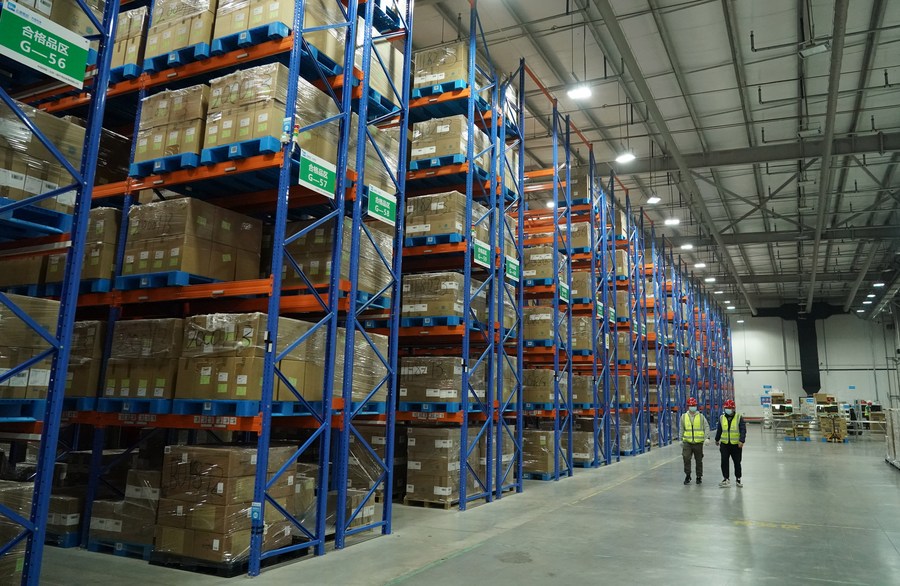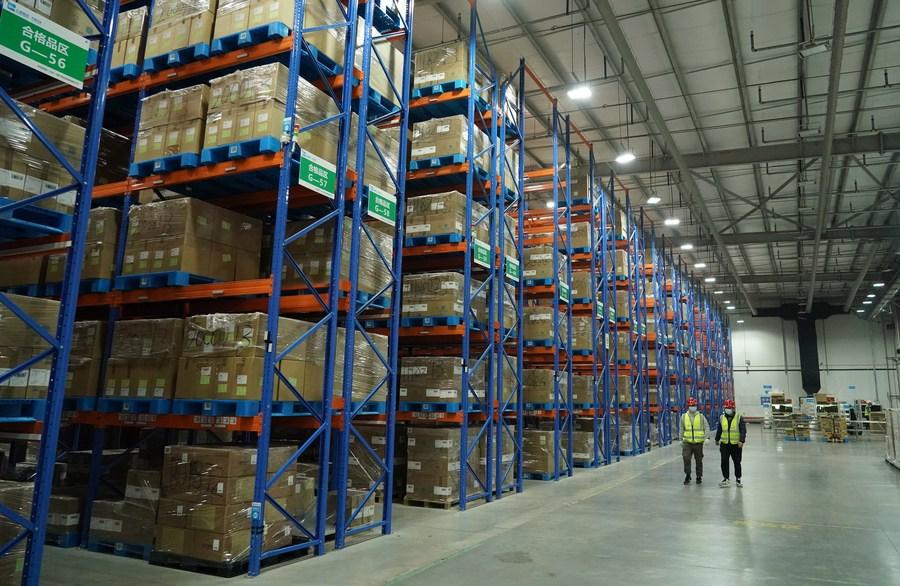
Two workers walk inside a warehouse of imported medicine for cross-border e-commerce in Tianzhu comprehensive bonded zone in Shunyi District, Beijing, capital of China, on March 12, 2021. (Xinhua/Ren Chao)
BEIJING, July 12 (Xinhua) -- China's State Council, the cabinet of China, has recently issued a document containing 25 measures to promote the development of new forms and models of foreign trade, reported Economic Information Daily Monday.
The document requires to expand the scope of the cross-border e-commerce comprehensive pilot zones, and encourages cross-border e-commerce platforms, operators, and supporting service providers to accelerate the cultivation of independent brands.
It also proposes to support pilot areas in exploring and innovating ways of market procurement trade in light of local conditions and attract more domestic trade entities to carry out foreign trade.
It says that efforts would be made to cultivate about 10 integrated domestic and foreign trade markets each with export value of more than 100 billion yuan, as well as a number of well-known brands, and improve the overseas warehouse network to boost cross-border e-commerce development.
Accelerating the development of new forms and models of foreign trade is in line with the development trend of international trade and trade innovation, said Yin Zhengping, a researcher at the Institute of International Trade, the Chinese Academy of International Trade and Economic Cooperation.
"In recent years, China's new foreign trade forms and models have developed rapidly, with cross-border e-commerce standing out. According to statistics from the General Administration of China, China's cross-border e-commerce imports and exports in 2020 stood at 1.69 trillion yuan, with a year-on-year increase of 31.1 percent. The document will further promote the sustainable development of cross-border e-commerce," saidYin.
China has expanded its cross-border e-commerce pilot zones five times and made the total number of such zones to 105, covering 30 provinces, autonomous regions and municipalities across the country, noted Wu Qi, executive director of the Wuxi Institute of Digital Economy based in east China's Jiangsu Province, adding that the development of cross-border e-commerce service platform construction, import and export return and exchange management, independent brand cultivation and other aspects is still relatively inadequate.
Yin Zhengping pointed out that the document will provide a policy basis for foreign trade innovation and development in the new development stage, as it covers all aspects of cross-border e-commerce development and puts forward corresponding supporting measures.
For example, Yin noted, the document provides suggestions on improving bonded maintenance business and promoting the development of offshore trade business. It also proposes to introduce the "sandbox supervision" model, adopting inclusive and prudent supervision measures to provide a safe space for business innovation and help put risks under control.
(Edited by Wang Yuhang, Gu Shanshan with Xinhua Silk Road, gushanshan.1987@163.com)




 A single purchase
A single purchase









